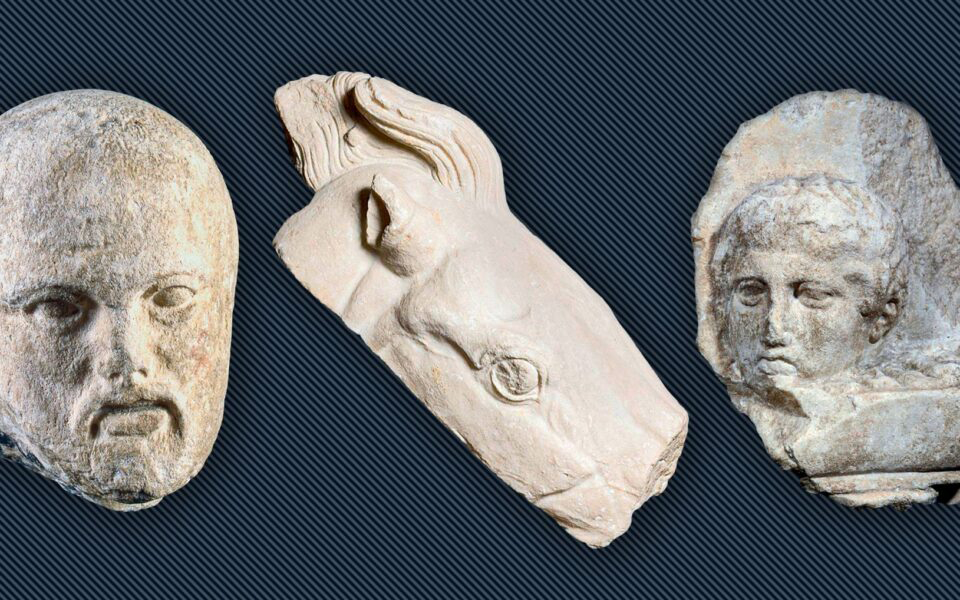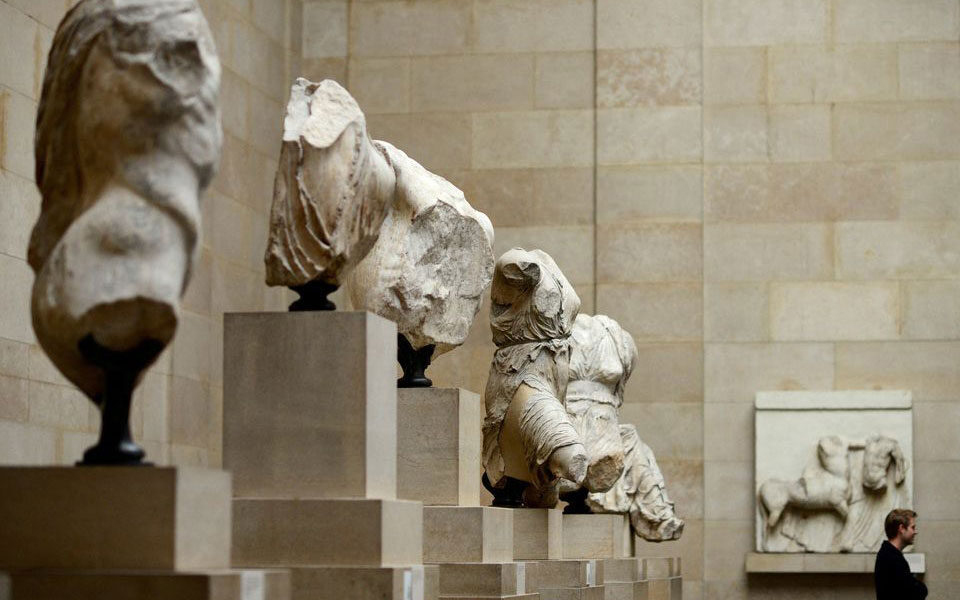“Pope Francis last month returned to Greece the Parthenon marbles held by the Vatican museums for some 100 years. It’s high time Britain followed the Argentinian pontiff’s example. Next year, when Greece marks the 50th anniversary of the return of democratic rule, presents an ideal opportunity,” writes Rachel Sanderson, in an opinion piece for Bloomberg on the subject of the Parthenon sculptures.
The head of the Catholic Church, motivated by a “sincere desire to follow in the ecumenical path of truth,” gave approval last year for the return of three fragments of the Parthenon’s decorative sculptures to Greece, held in the Vatican Museums since the early 19th century.
Regarding their return, which was officiated at the Acropolis Museum in Athens on March 24th, Sanderson cites Andrea Rurale, director of the masters in art management and administration program at Milan’s Bocconi University, who emphasized that “it helped that the Pope had the authority to make a unilateral decision, which ultimately gave him the power to override reported dissent by some within the Vatican Museums.”
“By comparison, Britain’s ownership of the Parthenon marbles, known as the Elgin Marbles after Lord Elgin who oversaw their removal beginning in 1801, is invested with endless angst and diverging views from innumerable stakeholders,” Sanderson continues, recalling that the current UK Prime Minister, Rishi Sunak, has firmly ruled out the return of the priceless sculptures, based on a 1963 British law that prohibits the disposal of museum objects.
“Thus, lending the marbles, under a rotation arrangement based on cultural exchange would be the only way over that legal hurdle,” says Sanderson.
The opinion article, titled “A Way for King Charles to Honor His Greek Father,” which was published today, also mentions the Parthenon Project, a non-profit organization working to reunite the sculptures in Athens. Chaired by Ed Vaizey, UK Minister for Culture, Communications and Creative Industries from 2010 to 2016, the organization is calling on the Greek government and British Museum officials to “agree to disagree” on the issue of ownership, proposing a “cultural cooperation agreement” to return the sculptures to Athens and offer Greek masterpieces to the British Museum in return for periodic visiting exhibitions.

© AP
“But the British Museum – whose collection of contested artworks includes the Rosetta Stone, preserved Maori heads from New Zealand, and some 200 Benin Bronzes – has indicated such a ‘cultural exchange, wouldn’t work for Greece since it would acknowledge British ownership. Athens argues that the removal of the marbles was an act of plunder by Lord Elgin before the creation of the modern Greek state,” continues Sanderson.
In addition, the article notes that the UK government rejected UNESCO’s recommendation in 2021 to restart talks with Greece on an intergovernmental level.
“But there is an opportunity here, and one where Pope Francis shows the way. Greece will celebrate the 50th anniversary of the restoration of democratic rule on July 24, 2024. To mark this date, Britain should consider an unencumbered gift of the marbles to the people of Greece. An act of parliament would be needed, but the person of King Charles III, who has often spoken of his proximity to Greece as the birthplace of his father, could be an apt emissary,” suggests Sanderson.
“These debates highlight a sea change since for much of modern times, such restitution was unthinkable. The majority of curators and state owners argued art was a global heritage and was best seen in big global museums. But the return of works stolen by Nazis began a global rethinking, along with high-profile battles to return looted antiquities to some Italian museums,” she continues, referring to Laurence de Carre, current director of the Louvre in Paris, who “is among the first generations of curators open to ‘giving back something when it is wrongly there.’”
“At the Vatican Museums, the return of the Parthenon marbles is being seen as a one-off that has no bearing on its trove of artworks.
And for Britain it would provide an opportunity, to foster friendship in Greece, and by implication to start to mend a fracture with Europe too. Should Greece then decide on its own merits to send artworks for exchange to the British Museum, then all to the good,” she concludes.
Source: Bloomberg











